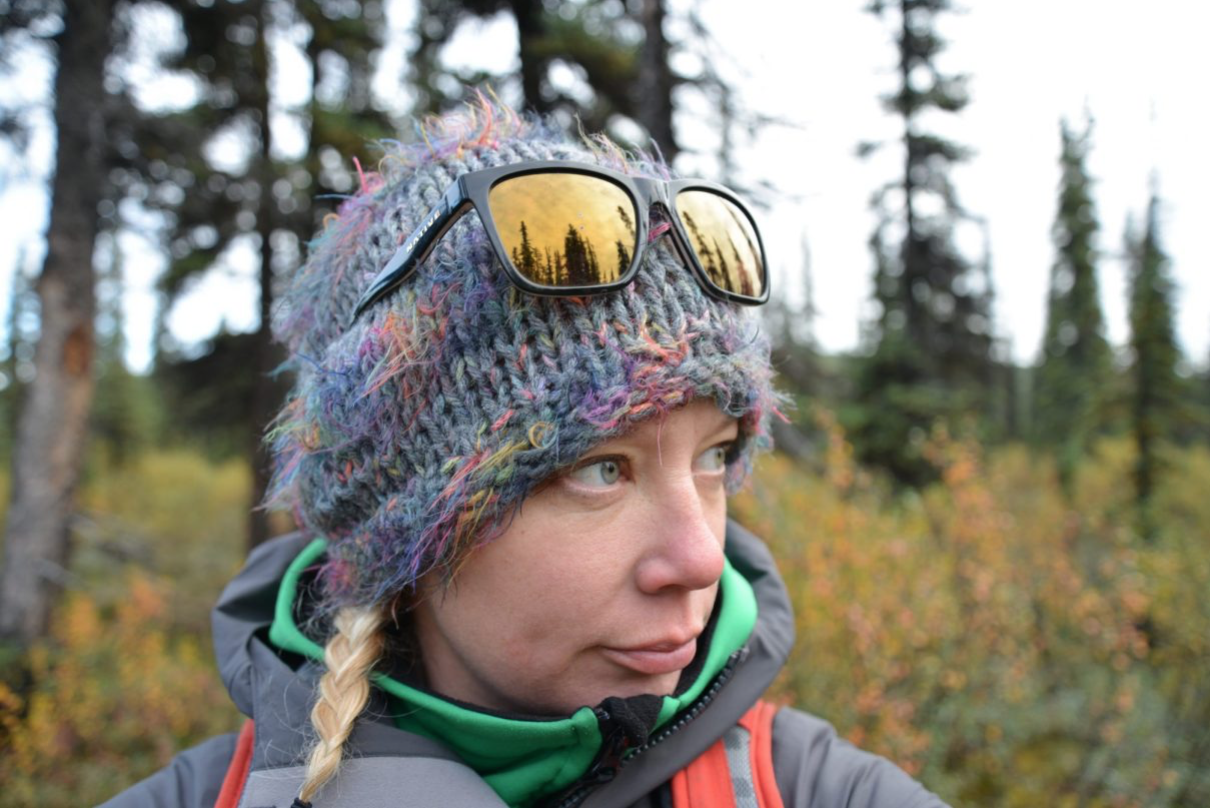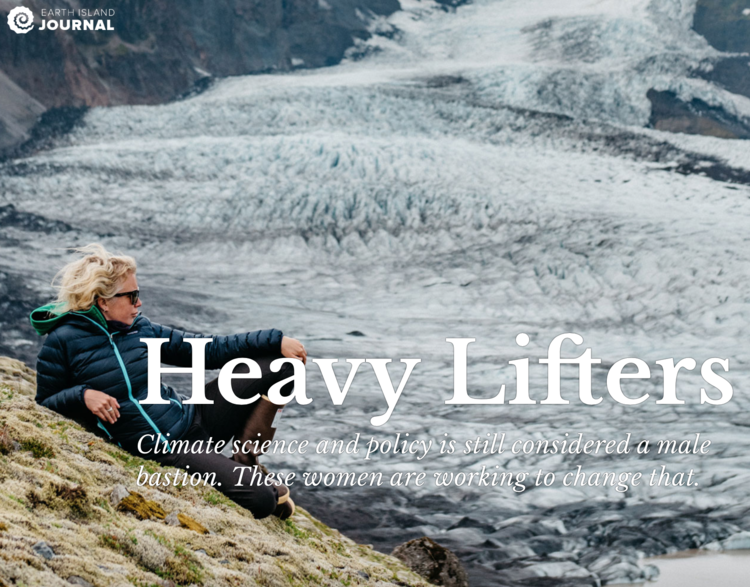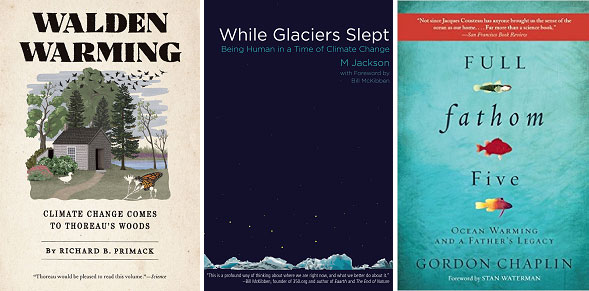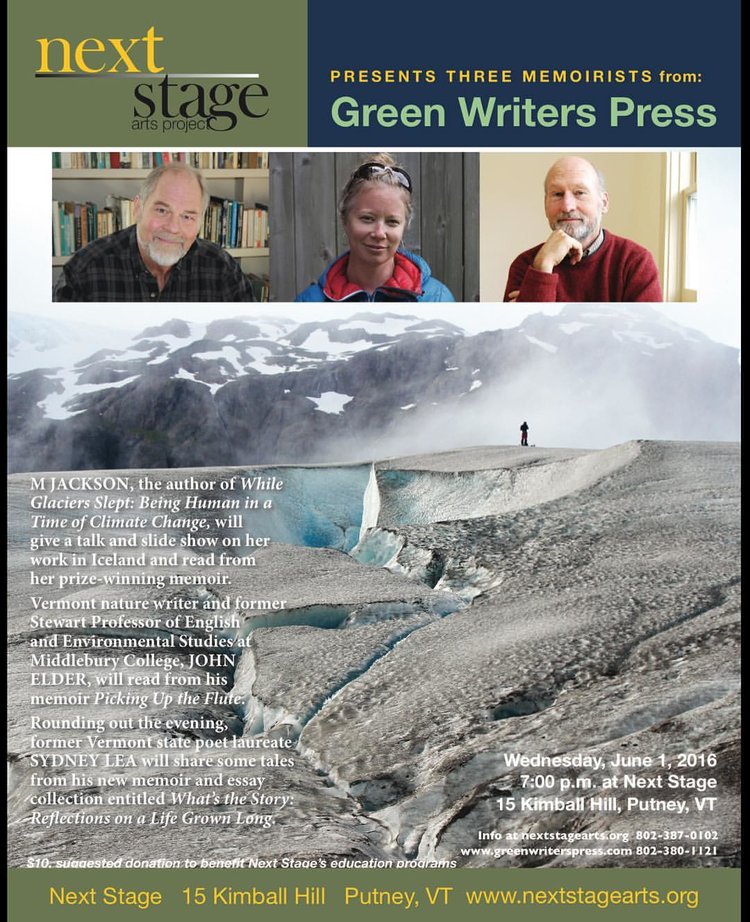Glaciologist and 2017 National Geographic Emerging Explorer M Jackson researches how glacial environments are responding to climate change. She recently spent a year in Iceland studying how rising temperatures are affecting communities near the fishing village of Höfn. We asked M a few questions about her research and her fascination with Iceland.
DR. M JACKSON ON THE TEACHINGS OF GLACIAL BEINGS
Our planet is covered in over five million square miles of ice, yet most of us have not encountered the intimacy and majesty of a glacier in person. We have not listened to their songs nor witnessed their shades of white and blue in clarity and opacity. In fact, most of us could only tell a single story around glacial beings – that they are disappearing. Our episode with Dr. M Jackson gives us a moment to pause and wonder, what other stories and experiences exist below this dominant story? What lives do glaciers live beyond their relationship to climate change?
Iceland’s glacier communities’ stories help us navigate a changing planet
Words- Karen Frances Eng/TED
***
Bridging scientific knowledge and human narrative, The Secret Lives of Glaciers offers a new way to think about not only glaciers, but about how to navigate rapid environmental change.
Glaciologist and geographer M Jackson has spent nearly a decade among the people of the south coast of Iceland, gathering stories of the glaciers they’ve lived among for generations. Just released in her new book The Secret Lives of Glaciers, the stories examine the often surprising ways social structures are being affected by climate-caused changes in ice and offer a new perspective on how humanity might talk about — and tackle — the effects of climate change. Here, we ask Jackson to tell us more.
Iceland Thaws: The Glaciers Are Melting – What Does It Mean For Icelanders?
U.S. geographer and glaciologist M Jackson has been visiting Iceland and the Vatnajökull region for almost a decade. Her recently released book, “The Secret Lives of Glaciers,” mixes climate science with an examination of what glaciers mean to us as individuals, communities, and as a species.
The research proved to be an interesting challenge. M designed her methodology as she went, coming back to Höfn for repeat visits and forming close connections with the community. “I started showing up and spent two summers getting my feet on the ground, learning a bit of Icelandic and understanding the geography of this place,” she says. “I tested different methods to see if they were appropriate. A lot of them weren’t. Glaciers don’t push back if you measure them, but when you speak to people, a typical analytical approach isn’t going to work. You need to have a series of open ended conversations. It’s long term, slow-as-ice research. But I love it.”
Feminist Glaciology: M Jackson On Ice, Climate, Culture & Gender
It seems safe to say that much of the literature around glaciers and climate change can be a little dry—no pun intended. Scientific texts on mass balance, false ogives, ground lines, dendrochronology and the cryosphere can be a little heavy for the glacier-curious layman.
This isn’t the case with “The Secret Lives of Glaciers,” a newly published book by American geographer, glaciologist and National Geographic writer M Jackson. The book takes the unusual tack of reporting climate change as a series of stories told by M and the people she meets during her time spent researching glaciers in Höfn. Containing elements of autobiography and diaristic accounts of the glaciers alongside conversations, observations, and anecdotes of all kinds, it’s approachable and readable stuff.
National Geographic | As glaciers disappear, humans lose a lot more than ice
A warming world is profoundly changing human culture and history—and it may just be the beginning.
For a couple of years I was living on the south coast of Iceland, and one day, a man knocked on the door of my home.
He asked if I wanted to see something. No adjectives. Just, did I want to see something?
I almost didn’t hear his knock. My house was on the extreme southeastern coast of the island—literally twenty feet from the sea—and strong winds were bashing the concrete walls and making the tin roof shriek with each gust.
I considered. It was cold, the wintery light was growing dim, I was a foreigner in the area, and if I went missing, no one would go looking for me for days. But then again, it was Iceland, one of the safest places in the world. And my curiosity was piqued.
I agreed and grabbed my nine-hundred-fill down jacket, gloves, and a hat. I ran outside and stepped high up into his Icelandic super jeep—the type that requires a little ladder to climb into the cab—and we drove slowly through the orderly, windblown streets of the village of Höfn.
EARTH ISLAND JOURNAL | HEAVY LIFTERS
Climate science and policy is still considered a male bastion. These women are working to change that.
The Glaciologist: M Jackson
LIKE RL MILLER, Dr. M JACKSON has purposefully chosen to operate professionally under a non-gendered name and is often presumed to be a man. She says when people do find out that she is a woman, her gender occasionally comes under attack. During the 2016 election, she and other members of the Glacier Lab at the University of Oregon, where she received her doctorate, released an academic study she didn’t expect more than a handful of professors and scientists to read. Entitled “Glaciers, Gender and Science,” it suggested that we should start looking at the issue of gender in glaciology.
NATGEO STUDENT EXPEDITIONS | MAKING GLACIERS
“It is the highlight of my year getting to work with students from around our world as they learn how to tell stories through filmmaking, photography, science, and many other lenses with National Geographic Student Expeditions.
Look at this beautiful short trailer of the work I do with glaciers and climate change made by National Geographic Student Expeditions student filmmaker Sophia Featherstone. With powerful imagery she shot from our recent Natgeo trip to Iceland, she catches why glaciers matter to me, and just how connected people and ice are. Great additional drone footage by Joe Tighe.”
-M Jackson
TED | DR. M JACKSON NAMED 2018 TED FELLOW
The TED Fellows program supports extraordinary, iconoclastic individuals at work on world-changing projects, providing them with access to the global TED platform and community, as well as new tools and resources to amplify their remarkable vision. The TED Fellows program now includes 453 Fellows who work across 96 countries, forming a powerful, far-reaching network of artists, scientists, doctors, activists, entrepreneurs, inventors, journalists and beyond, each dedicated to making our world better and more equitable.
M Jackson (USA)
Geographer + glaciologist
Glaciologist researching the cultural and social impacts of climate change on communities across all eight circumpolar nations, and an advocate for more inclusive practices in the field of glaciology.
FAST COMPANY | THESE ARE THE 2018 TED FELLOWS, FINDING INSPIRING SOLUTIONS TO GLOBAL PROBLEMS
Fighting sexual harassment, fake news, and myriad other global challenges, this cohort of innovators is the latest to be trained and featured by the innovation conference.
M JACKSON - The American geographer and glaciologist M Jackson is traversing the eighth most northern nations in the world to understand the cultural and societal impacts of climate change.
THE CUT | THE MARCH FOR SCIENCE HAS KICKED OFF A BIG, IMPORTANT CONVERSATION ABOUT SCIENTIFIC ‘OBJECTIVITY'
There’s been a lot of heated online debate about the upcoming March for Science in Washington, an event that is billed as a response to the election of Donald Trump and “the first step of a global movement to defend the vital role science plays in our health, safety, economies, and governments.” As is often the case with heated online debates, people are doing a lot of yelling and talking past one another. But beyond all that noise is an important, complicated conversation about science, politics, and social justice — a conversation worth having.
THE SEATTLE SPECTATOR | REVIEW OF “WHILE GLACIERS SLEPT,” A STORY OF CLIMATE CHANGE
On Thursday, Feb. 2, Seattle’s town hall held a program that changed the direction of climate change, and the voice that carries it. M Jackson, scientist and National Geographic Expert, shared her novel “While Glaciers Slept: Being Human In A Time of Climate Change” to the Seattle public, translating the language of science into a common feeling understood by all.
Jackson starts the novel by reflecting on a memory in her past. Taking place in the office of her parents, Jackson recounts to the audience how in this moment, she was cleaning up the life her mom and dad had once lived. As her story progresses, Jackson reveals that her parents had died of terminal cancer, leaving nothing but an empty home and possessions for their daughters to sort through.
TEDX TALKS | GLACIERS, GENDER, AND SCIENCE: WE NEED MORE STORIES OF ICE
What happens when we view glacier science within their cultural and social contexts? How can we use a feminist lens to examine glaciers and people in context together, understand how glacier stories are produced, circulated, and gain credibility and authority across time and space? A feminist lens is crucial here because the majority of glaciological knowledge stems from information produced by men, about men, within existing masculine stories. M JACKSON is a self-described glacier nerd, adventurer, and environmental educator pursuing a doctorate degree in geography and earth science at the University of Oregon as she researches glaciers and climate change in the Arctic. Jackson is a two-time U.S. Fulbright Scholar and received a 2015-2016 Fulbright-National Science Foundation Arctic Research grant to research how glacier change impacts communities on the south coast of the island in Höfn, Iceland. Jackson has worked for over seven years for the National Geographic Society as an Arctic Expert, leading expeditions and lecturing about the Arctic, glaciology, climate change, and environmental sciences. Jackson released her first book in 2015, While Glaciers Slept: Being Human in a Time of Climate Change, which explores the parallel between changes in the climate and family in the face of loss.
OREGON QUARTERLY | BREAKING THE ICE
“M” Jackson, a Fulbright-winning geographer, broadened the understanding of climate change and glaciers by immersing herself in the culture of those who are directly affected by it.
Until now, the roughly 2,000 Icelanders who live in the town of Höfn, (pronounced “huf”) have supported themselves on the backs of two steady industries—fishing and helping tourists explore the nearby Vatnajökull ice cap and the glaciers that flow from it.
Those glaciers are melting, gouging lagoons into the earth behind them as they retreat, and everything in Höfn is slowly changing.
YALE CLIMATE CONNECTIONS | BOOKSHELF: HOT READS FOR HOT MONTHS
While Glaciers Slept: Being Human in a Time of Climate Change, by M. Jackson (Green Writers Press 2015)
While Glaciers Slept weaves together the parallel stories of what happens when the climates of a family and a planet change. M. Jackson, a noted scientist and National Geographic Expert, reveals how these events are deeply intertwined, and how the deterioration of her parents’ health was as devastating as the inexorable changing of Earth’s climate. Jackson poses a stark question: if losing one’s parents is so devastating, how can we survive the destruction of the planet that sustains us? Jackson draws both literal and metaphorical parallels between the degradation of the climate and her parents’ struggles with cancer. Nonetheless, Jackson shows that even in the darkest of times we cannot lose hope. Jackson guides us to solar, wind, and geothermal solutions, bringing us along on her expeditions to research climate change and to educate people about how to stop it. . . . Climate change, she convinces us, is not just about science – it is also about the audacity of human courage and imagination.
BRATTLEBORO REFORMER | GREEN WRITERS PRESS AND NEXT STAGE PRESENT THREE MEMOIRISTS
"While Glaciers Slept" weaves together the parallel stories of what happens when the climates of a family and a planet change. M Jackson, a noted scientist and National Geographic Expert, reveals how these events are deeply intertwined, and how the deterioration of her parents' health was as devastating as the inexorable changing of Earth's climate. Jackson poses a stark question: if losing one's parents is so devastating, how can we survive the destruction of the planet that sustains us? Jackson draws both literal and metaphorical parallels between the degradation of the climate and her parents' struggles with cancer. Nonetheless, Jackson shows that even in the darkest of times we cannot lose hope. Jackson guides us to solar, wind, and geothermal solutions, bringing us along on her expeditions to research climate change and to educate people about how to stop it. Scientists are continually looking for better ways to translate hard science into human language and that is precisely what this book does. While Glaciers Slept shows us that the story of one family can be the story of one planet, and that climate change has a human face. Climate change, she convinces us, is not just about science—it is also about the audacity of human courage and imagination.
According to Dr. Steve Running, winner of the 2007 Nobel Peace Prize for his research on climate change, "M Jackson brings climate change down from an abstract global scale to a very personal human scale. Particularly engaging for the non-scientist reader."
Library Journal reviewer Venessa Hughes wrote that While Glaciers Slept was "reminiscent of Bill McKibben's Eaarth, [a title that] will interest readers of environmental issues, particularly climate change and a warming Arctic region, and fans of personal narratives."
ECOWATCH | CLIMATE DENIERS MOCK 'FEMINIST GLACIOLOGY' STUDY
There’s a study that’s been floating around lately, causing condescending eye-rolls among the climate deniers and raised eyebrows among even a couple more mainstream voices. The paper is a look at “Glaciers, gender and science” that applies “a feminist glaciology framework” to research, and in light of yesterday being International Women’s Day, we decided it deserves a little defending from the mockery it’s received in pretty much all the coverage except a blog post by the researcher’s university and one story from Oregon’s Register-Guard.
While people like Anthony Watts may be happy leaving the analysis at the level of stereotypes about how “millions of husbands and wives battle over the home thermostat,” this paper is actually an in-depth and well-researched look at how this specific scientific discipline has, like most others, historically ignored the female perspective.
GLACIER LAB | FEMINIST GLACIOLOGY STUDY PUBLISHED
Glacier Lab members Mark Carey, M Jackson, Alessandro Antonello, and former Lab member Jaclyn Rushing recently published a study on “Glaciers, Gender, and Science” in the peer-reviewed journal Progress in Human Geography. The journal Science recently profiled this article in an interview with Carey.
The concept of “feminist glaciology” is new to many people. It addresses the fact that, while women are more likely to be harmed or negatively affected by glacial melt than men, women’s voices are also less often heard in the context of glacier knowledge.
GAWKER | THE FEDERAL GOVERNMENT DID NOT SPEND $412K TO STUDY GENDER AND GLACIERS
Here is a story that is perfectly calibrated to rile up the staffers of right-leaning publications. It has federal overspending to the tune of six figures on seemingly trivial causes. It has concern for the environment and climate change. Most importantly, it’s got a big ol’ dollop of campus feminism, holding it all together. It’s too bad it isn’t really true.
Late last week, the blog Powerline posted an item titled “Academic Gibberish: We have another winner,” which highlighted a recently published paper titled “Glaciers, gender, and science: A feminist glaciology framework for global environmental change research.” The paper was authored by academics at the University of Oregon and published in the journal Progress in Human Geography. Reason subsequently picked it up, and, as is their Libertarian wont, mocked the study for being financed by a National Science Foundation grant. “This University of Oregon Study on Feminizing Glaciers Might Make You Root for Trump,” the headline read.
UNIVERSITY OF OREGON | M JACKSON ON A FULBRIGHT IN ICELAND
PhD Candidate M Jackson an adventurer, environmental educator, a Fulbright scholar, emergency medical technician, cat-lady, trip leader for National Geographic Student Expeditions, author, and so much more.
M is currently in Iceland on her second Fulbright-funded research project. This one is to explore how climate change affects communities near the fishing village of Höfn, Iceland.


















